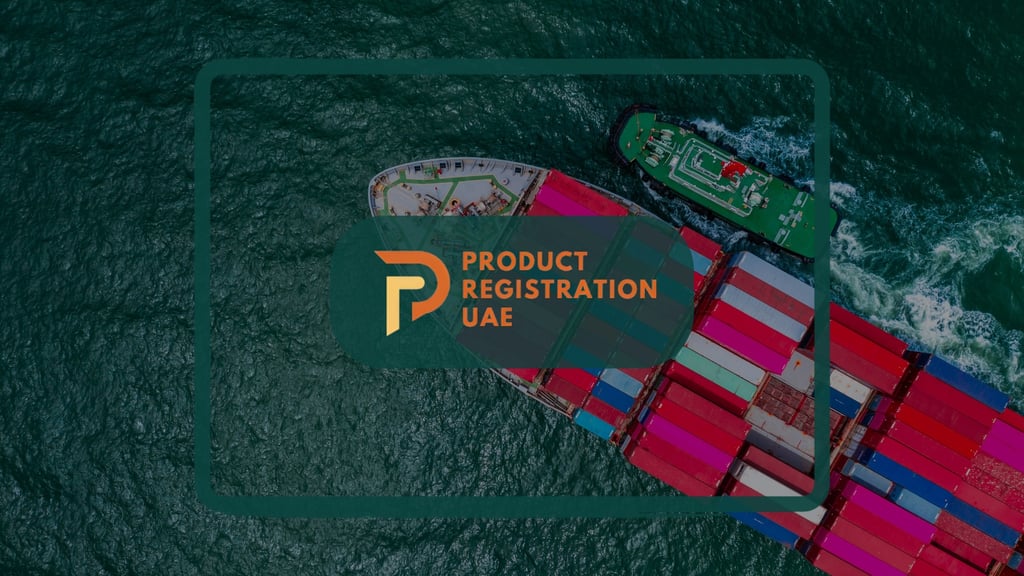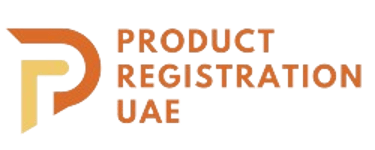Importer vs AR UAE (2025): Who Files, Labels & Recalls
Importer vs AR UAE explained: who can file approvals, who owns the dossier, Arabic label duties, and recall liability—avoid portal errors and import holds.
9/25/20256 min read


Importer vs Authorized Representative vs Distributor in the UAE:
Who’s Responsible for Approval, Labels & Recalls?
Why this matters now
If you sell into the UAE, who holds regulatory responsibility is not a formality—it determines who can file for approval, who owns the dossier, whose name appears on certificates/labels, and who must lead recalls.
Confusion between Importer, Authorized Representative (AR), and Distributor is a top reason for delays, portal dead‑ends, and import holds.
Consultancy lens: This guide helps you spot risks and ask the right questions. It does not replace expert review of your licenses, product scope, labels, and portal setup.
Who can file for approval?
In the UAE, the entity that files must be legally empowered and properly licensed.
Importer (mainland-licensed): The most common approval holder.
A UAE commercial license covering the relevant activity (e.g., cosmetics trading, food supplements, electricals) allows the importer to submit to MoHAP, Dubai Municipality – Montaji, ESMA (ECAS/EQM), or QCC, depending on category.
Importers often file when they control logistics and want speed.
Authorized Representative (AR): Appointed by the brand owner to act on its behalf.
The AR holds submission rights across portals and becomes the named point of contact for authorities.
ARs are preferred when a brand wants to retain control over approvals and avoid being tied to a single importer or distributor.
Distributor: Sells in the market under a commercial agreement but typically cannot register products independently.
Distributors rely on the Importer or AR to hold approvals. An exception may exist where a distributor is also the licensed importer or the appointed AR, but “distributor-only” status does not grant filing rights.
Free zone vs mainland: Free zone companies can be approval holders in many cases, but market placement on the mainland may still require a mainland partner or customs broker alignment.
Retail placement and some submissions are smoother when the approval holder has a mainland license. Plan roles early to avoid double-handling at import.
Pre‑approval responsibilities (before you submit)
Classification & route (high‑level): Identify the correct authority and pathway (MoHAP, Montaji, ECAS/EQM, or QCC).
Categories and standards shift over time; misclassification is common.
Dossier ownership (principle, not step‑by‑step): The filing entity must hold accredited test reports, legalized documents, Arabic translations, and a clean GTIN/SKU map.
Evidence must match label claims. Small gaps cause big delays.
Label accountability: The approval holder is responsible for Arabic elements, claims, ingredients, warnings, batch/expiry, and any UAE marks (ECAS/EQM).
Labels must mirror the certificate scope—variants, sizes, and claims.
Portal role setup (avoid DIY pitfalls): Each portal requires precise entity registration and delegated rights. An AR appointment without submission privileges stalls cases.
We configure roles and verify access before dossier upload.
Where DIY goes wrong: Misreading category scope, using non‑recognized test reports, skipping legalization/Arabic, or misconfigured portal roles.
These errors are hard to unwind once submitted.
Post‑approval & market duties (after you’re live)
Change control: Any formula, label, or packaging update needs a variation or renewal. Unreported changes can invalidate certificates and trigger import stops.
Traceability & complaints: Maintain batch and GTIN logs and a documented process to respond to authority queries. Expect surveillance or market sampling for higher‑risk categories.
Recalls & field actions: If a safety signal arises, the approval holder leads the recall plan, notifications, timelines, consumer communications, and closure. Distributors support execution and traceability.
Where experts add value: Deciding when a label tweak is a variation vs a new approval; coordinating multi‑SKU renewals; replying to complex authority queries without exposing new risks.
Who does what (plain‑English guide)
Approvals & filing:
If the Importer holds the right UAE trade license, they can submit approvals to MoHAP, Montaji, ECAS/EQM, or QCC.
An Authorized Representative (AR) may also submit—but only if officially appointed by the brand owner.
A Distributor doesn’t submit on their own unless they are also the Importer or AR.
Dossier & paperwork ownership:
Whoever files (Importer or AR) owns the dossier end‑to‑end: accredited test reports, legalized documents, Arabic translations, safety assessments, and the GTIN/SKU list.
Distributors support by supplying data, but are not the dossier owner.
Labels & claims (Arabic included):
The approval holder (Importer or AR) is accountable for correct Arabic content, claims substantiation, ingredients, warnings, dates/batch, and any UAE marks (ECAS/EQM).
Distributors follow the approved artwork—no unauthorized relabeling.
Market placement & customs:
The Importer handles customs clearance and the physical import chain.
An AR can be an approval holder yet still relies on the Importer or a customs partner to land goods.
Distributors focus on sales and channel execution inside the UAE.
Variations & renewals:
Any formula, label, pack, or claims change is raised by the approval holder (Importer or AR) as a variation, and renewals are their responsibility.
Distributors must inform the holder of any planned changes that affect compliance.
Complaints & authority queries:
Authorities contact the approval holder first. They coordinate responses, corrective actions, and documentation.
Distributors help with store‑level details, batch records, and customer follow‑up.
Recalls & field actions:
If a risk appears, the approval holder leads the recall—classification, notifications, timelines, consumer communications, and closure reports.
Distributors assist with product withdrawal and traceability across their channels.
Tip: Brands using multiple sales partners usually keep approvals with an AR to stay independent of any single importer; it prevents lock‑in and makes distributor changes simpler.
Role responsibilities (quick scan):
Approvals & filing: Importer — Yes (if licensed); AR — Yes (if appointed); Distributor — No (unless also Importer/AR).
Dossier build & maintenance: Importer — Responsible; AR — Responsible; Distributor — Assist only.
Arabic label compliance & claims: Importer — Accountable; AR — Accountable; Distributor — Execute as supplied.
Market placement (customs, logistics): Importer — Handles; AR — Via importer/customs partner; Distributor — Sales only.
Variations & renewals: Importer — Lead if approval holder; AR — Lead if approval holder; Distributor — Inform holder.
Complaints & authority queries: Importer — Primary if holder; AR — Primary if holder; Distributor — Support.
Recalls & field actions: Importer — Leads if holder; AR — Leads if holder; Distributor — Support.
Tip: Brand owners selling through multiple channels in the UAE usually prefer the AR model to keep approvals independent from any single importer.
Risk traps (and how we fix them)
AR appointed, but portal roles misassigned: The AR lacks submission rights; applications stall for weeks.
Fix: We configure portal roles, attach appointment letters, and validate authority‑specific requirements before the first submission.
Distributor relabels beyond certificate scope: A distributor “localizes” artwork and adds claims not present in the approval—result: import holds and corrective actions.
Fix: We run label version control, align claims to dossier evidence, and pre‑approve Arabic content.
ECAS/EQM mismatch across SKU variants: Some sizes/voltages covered, others not; surveillance missed; UAE Quality Mark misused.
Fix: We map SKU/GTIN to each certificate, plan surveillance and mark usage, and clean up legacy certificates.
Free zone approval, mainland sales: Goods clear into mainland retail without proper partner alignment; customs queries pile up.
Fix: We set the right import chain, document responsibilities, and ensure the approval holder matches the trading route.
Worked example (typical cosmetics scenario)
A European brand appoints a UAE Authorized Representative to keep control of Montaji approvals, while two distributors sell across different emirates.
The AR files the dossiers, owns Arabic label validation, and manages variations for seasonal packs.
Each distributor receives approval‑aligned artwork and pack lists.
When a consumer complaint arrives, the AR answers Dubai Municipality, while the distributors provide batch and sales traceability. Result: clean governance, faster launches, and no lock‑in to any single distributor.
FAQs
Can a foreign brand register directly without a local entity?
Not typically. You need a UAE‑licensed Importer or an appointed Authorized Representative to hold approvals and interface with authorities.
Does a distributor’s name have to be on the label?
Labels must reflect the responsible local entity as required by the category rules. Often this is the approval holder (Importer/AR); distributors can be identified in logistics documentation rather than on-pack, depending on the regulation.
If we switch distributors, do approvals transfer automatically?
No. Approvals belong to the approval holder. Using an AR helps brands switch distributors without losing registrations; transfers otherwise require formal processes.
Who leads a recall?
The approval holder (Importer or AR). Distributors support with market withdrawal, but the legal lead—and communication with authorities—sits with the holder.
How we help (Registration Services · Label Validation · Regulatory Consulting · Advocacy)
Role model design: Choose Importer vs AR vs hybrid based on your route to market, licenses, and distributor strategy.
Standards & scheme mapping: MoHAP / Montaji / ECAS–EQM / QCC pathway selection, including SKU/variant coverage to avoid gaps.
Dossier & label alignment: Evidence, legalization, Arabic content, and claims validation tied to GTIN/SKU lists.
Portal configuration & governance: Correct entity setup, access rights, and audit‑ready change control.
Stuck case advocacy: We resolve portal dead‑ends, import holds, and surveillance findings.
Let us offer you a complimentary expert consultation. We’ll flag risks, recommend the correct holder (Importer or AR), and outline the fastest compliant path.
Contact us or use the chatbot to map your roles and file the first submission correctly.
Related Blogs
ECAS vs EQM in the UAE (2025): Which Certification Do You Need? Costs, Timelines & Common Pitfalls
Stability Testing in the UAE (2025): The Hidden Requirement Behind Shelf-Life Approval
Understanding UAE’s Product Recall Process: Compliance & Risk Management


